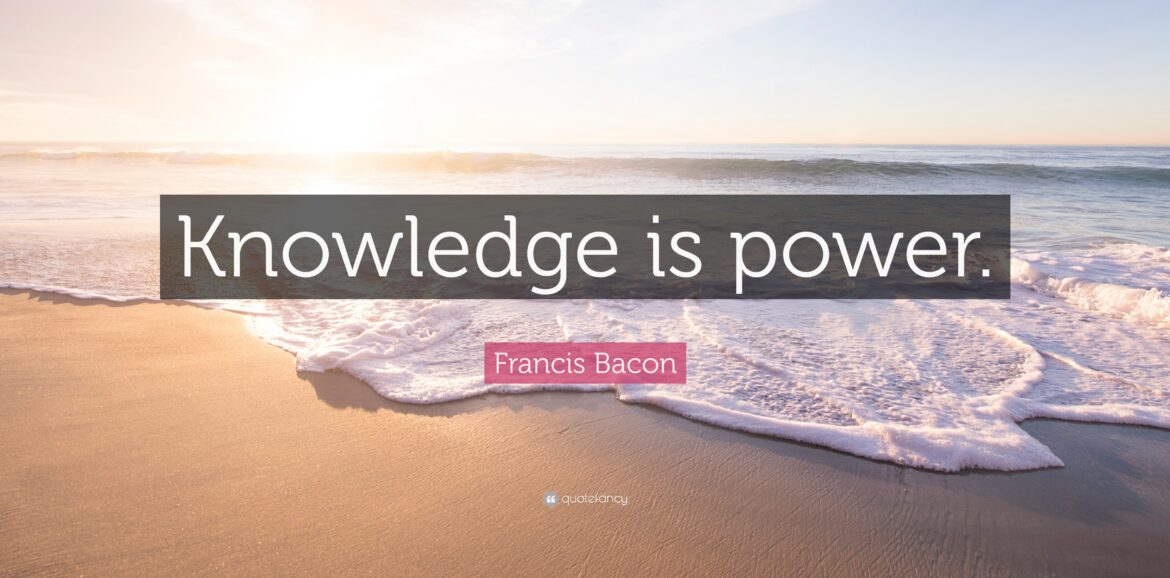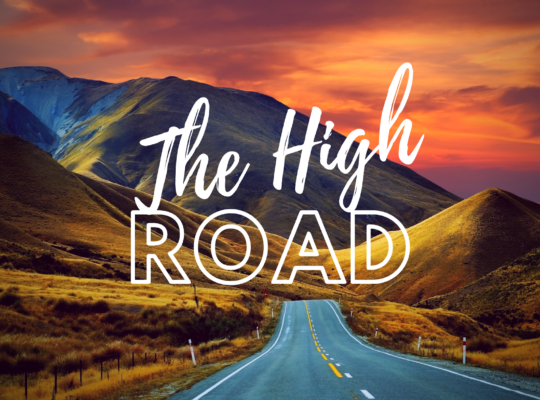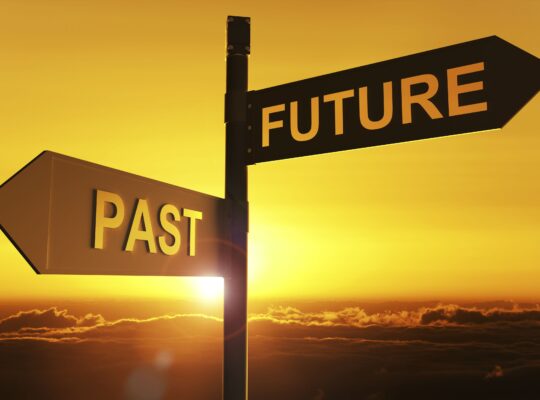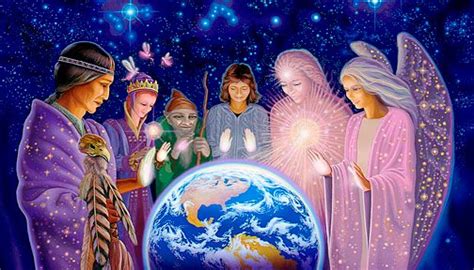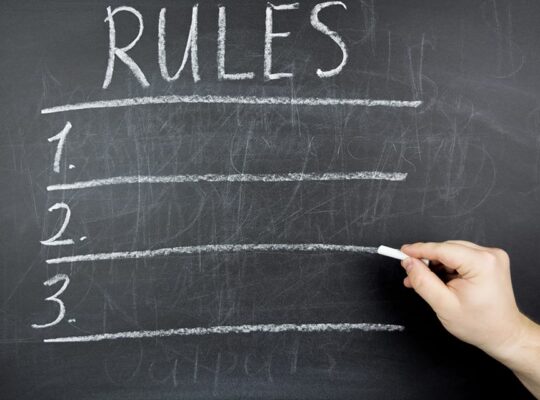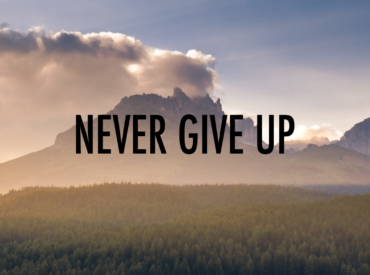You Can’t Know What You Don’t Know
That seems obvious, right?
But we forget.
Have you ever had a friend who was upset with you and when you ask why her answer is, “You should know!” I have and it’s maddening. What if I really don’t know??? Their answer could be, “I can’t believe you don’t know!” or “How can you not know?” It doesn’t matter that you don’t know, you don’t. So, please tell me!
Enlighten me! Tell me what I DON’T know.
One time I was driving in LA (Los Angeles) when my son was little. If you’ve ever driven in their traffic, much less rush hour, it’s total chaos. Worse than ours, or at least it was back then. I was in the far right lane and needed to be in the far left lane for a left exit. So, I did what any courteous driver would do: I put on my signal and slowly moved over. Unbeknownst to me there was a CHIPS officer (California motorcycle police) nearby who spotted my maneuver and pulled me over.
I was honestly confused when the officer came up to my window. I had no clue what I did wrong. Honest. The cop explained what I did wrong and let me off because it was obvious from my out of state driver’s license that I wasn’t from there. The cop wasn’t happy with me, but let me off with a reprimand. What an odd thing that I couldn’t get all the way over to exit. How was I supposed to know? I’d never seen that rule before and it’s not a rule that we have here in Texas. If there was a sign, clearly, I missed it. Whether there was a sign or not is not the point. The point is, if there was, I didn’t see it so I honestly did not know that in California doing what I did is a traffic violation.
How can you know what you don’t know?
You can’t.
Unseen Consequences
In that case, I lucked out. No one was hurt and there was no huge ticket fee. Other times there can be huge consequences like a broken relationship all because of our “blissful” ignorance. Or we ruin our relationship with ourselves for being “stupid” for not knowing (what we can’t know!).
We beat ourselves up because we did something “wrong.” We’re tempted to scold ourselves with, “But I should’ve known!” But if you didn’t know, how can you know?
If you’re in a relationship of any kind and you’re doing something that’s bothering someone, unless they give you some sort of feedback, how can you know? That’s the way I looked at my traffic violation. I truly didn’t know. I let it go and didn’t beat myself up for it. Move along, nothing to see here.
You can’t know what you don’t know!
The same is true with school. Until you go to school and learn math (or someone teaches you outside of school), how can you know about addition? Or how to read or anything else? Until you learn, you can’t know how to do it.
If you bought a new friend perfume for her birthday and you didn’t know she was allergic to it, don’t beat yourself up. You didn’t know! You couldn’t have known that. You did something wrong at work that you had no clue was wrong. You didn’t know! Don’t beat yourself up. These little things stack up and we get down on ourselves – for no good reason. Don’t.
Remember the Obvious
It’s so obvious, but we often overlook the simplest explanation. Let yourself off the hook with that knowledge – you can’t know what you don’t know!
We’re smart creatures but this isn’t about intelligence. It’s about knowledge or awareness. Until you learn something, even if by observation, you can’t know how to do it. If you did something incorrectly but don’t have the awareness that you did, how can you know how to rectify it?
We’re human so we’re not infallible. We make mistakes. We do things wrong. We mess up. When we’re hard on ourselves, especially if we’re a perfectionist, it’s easy to blame ourselves. If you grew up in a dysfunctional household where you were always wrong, then it’s easy to come to the conclusion now that you’re still wrong. You’re still a screw up. You’re still worthless. But none of that is true! Those are old messages, old tapes, old stories, old family programming. Even if you do make mistakes, you’re not a bad person.
That’s why “knowledge is power.” Once you know the error of your ways, then you can change them. Again, if you didn’t know you were doing something wrong, then how can you know?
If someone doesn’t give you feedback, you can’t know what you did to upset them. Unless, of course, it’s obvious. Sometimes it’s not obvious. Or we’re oblivious. So, we still don’t know. We don’t realize what we said or did was upsetting to them.
Step One
Awareness is the first step to change. If you don’t know about something, if you’re not aware of it, you can’t change it. It’s that simple. This isn’t a variation of, “If it’s not broke, don’t fix it.” Instead, this is, “If you didn’t know it was broken, how can you know how to fix it? Or that it needs to be fixed?”
Instead of beating yourself up next time, let yourself off the hook. Change those tapes. Remind yourself that now you know, now you can course correct. You can make changes. Knowledge IS power. If you don’t know how to fix something, thankfully we have a wonderful resource called Google. Or Youtube. Anything can be googled – how to fix tangible items like your TV or washing machine or even intangible things like relationships. But first you have to know that it’s broken. You have to know what to put into the search bar.
Step one – awareness that there’s an issue. If you don’t know there’s a problem, then you don’t know it needs to be fixed. Step two – how to solve it. Once you’ve identified there’s an issue and what it is, now you can solve it. Get the knowledge or the feedback.
How Do You Become Aware?
How to fix the issue is the easier step because it’s a matter of getting information. It depends on the situation of course. If it’s a relationship issue, ask for feedback. If it’s a tangible broken item that you don’t know how to diagnose or what to type in the search bar for self-help, then take it to the expert.
How to obtain awareness takes practice. If you’re an unaware person in general, then strive to be in the present. The more we are in the present, the more we notice. We notice not just situations but even more importantly, how we feel and what we’re thinking. These things are important because they govern our reactions to situations. Once we are present, we can become more aware of others. Notice how they react when you say or do a certain thing. Observe. Observing and noticing will become much easier once you get out of your head and into the present. Being in our head keeps us out of the present.
Practice mindfulness, which is observing your thoughts and feelings without judgement. The best way that I know to get into that space is to take deep breaths. One really long deep breath can do it but three also works. If you need more to calm you down and get out of your head, then try five or ten. Once you are calm, then you are out of fear, anxiety, doubt etc. Now you are in the moment. In the moment is when we can observe. The present is where the magic happens.
Just remember, if it was the year 1900 and someone handed you an ipad how would you know how to turn it on or what to do with it? You can’t know what you don’t know! You aren’t at fault. You aren’t stupid. You aren’t a bad person. You just lack knowledge. So, get it!
Another way to gain knowledge is to ask your best friend, your intuition. It will know. It will guide you. It will help you identify what to deal with now and what not to…if you ask it!
If you want to learn how to listen to it, how to talk to it and how to trust it by CLICKING
HERE. I developed this easy-to-follow online course because people like you asked me to.
Once you start listening to your intuition, you’ll be amazed how much your life clicks into place. Then you can truly start enjoying yourself. CLICK HERE to find out more!
